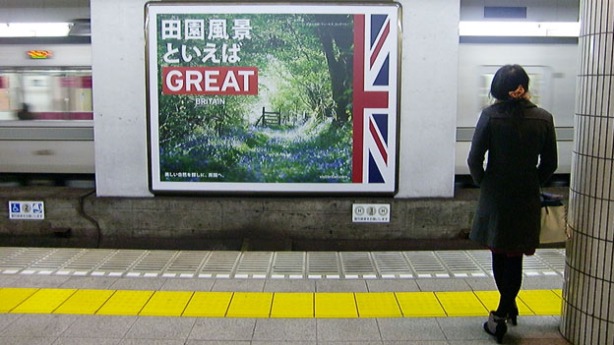New Year = New British Image?
Whether it’s our image or temperament many of us see the New Year as a chance to reinvent ourselves by using the past year’s events and mistakes and adopting a course of self mastery. However, these concepts of self improvement are not only synonymous with people. In the hope of achieving a new influx of commercial opportunity and universal approbation, states can also redesign the image that is projected to the international community through the concepts of public diplomacy. By creating a national ‘brand’ which appears attractive to overseas populations, the hope is that the national agenda and foreign policies of the state are successfully achieved. So, using the United Kingdom’s previous 365 days as an example, what can British government do to convince other nations that the word ‘Great’ still resembles Great Britain in 2013?
It’s safe to say that many British citizens believe that GB had a stellar year in 2012 in terms of flaunting itself to the world. With national spectacles such as The London Olympic and Paralympics and the Diamond Jubilee, the UK had a sizeable portion of time in the international spot-light. Based on these huge internationally captivating events British government used copious ‘soft power’ based campaigns, such as The GREAT campaign to “showcase Britain’s capabilities and enhance its reputation aboard to maximise economic potential.”[1]
Although the obvious and ostentatiously titled billboards such as “Innovation is GREAT Britain”, “Entrepreneurs are GREAT Britain” and “Technology is GREAT Britain” which were plastered at home and abroad were perhaps a little far from being labelled ‘soft’ methods of persuasion, the Foreign & Commonwealth Office saw the Olympics as “a once in a generation opportunity for the UK to attract the attention and interest of the entire global community.”[2]
Did these examples of public diplomacy work? Yes and No. Yes, according to the Office for National Statistics, gross domestic product (GDP) figures grew by 1.0%.[3] However, the Olympics and correlating public diplomacy campaigns that followed failed to provide the economic resurrection that British Government and the British public so desperately desired. David Cameron’s prediction of generating £13bn over the next four years as a result of the campaign[4] remains to be seen, but this seems more like ‘guesstimation’ rather than solid economic fact.
Ultimately, the efforts made by British government in 2012 will provide a band-wagon for which British public diplomacy efforts to proverbially ‘jump’ on to throughout 2013. It’s true that the Olympics significantly showcased the whole nation and indeed the global populace of what the UK has to offer. However if Britain is to truly promote itself in the international arena, to competitively fight amongst the heavyweights of the US and China, the Olympic balloon which has so far been slowly moving towards the heavens will eventually pop.
[1] Foreign & Commonwealth Office, The GREAT campaign, http://www.fco.gov.uk/en/about-us/what-we-do/public-diplomacy/great-campaign/# (January 2013)
[2] William Hague FRSL MP, “FCO Public Diplomacy: The Olympic and Paralympic Games 2012, April 2011”, Second Report from the Foreign Affairs Committee Session 2010-2011. http://www.official-documents.gov.uk/document/cm80/8059/8059.pdf (January 2013).
[3] “UK economy returns to growth with help from Olympics”, BBC News, 25th October 2012 http://www.bbc.co.uk/news/business-20078231 (January 2013)
[4] “David Cameron predicts £13bn Olympics boost”, The Independent, Thursday 5th July 2012 http://www.independent.co.uk/news/uk/politics/david-cameron-predicts-13bn-olympics-boost-7912860.html (January 2013)


Thank you for your article, I enjoyed reading it and reminded me of some of the great events on London in 2012.
My key criticism of your blog is that you entirely focus on the economic aspects and opportunities that events and public diplomacy may create. Although a country’s image and general climate are factors for increased exports and foreign direct investments, we should not forget that an economy’s successes is predominately determined by private actors, in the form of corporations, in any open market economy.
I would have liked to hear more about how public diplomacy or an improved image of Britain, helped to create a more favourable international environment, for Britain to promote its foreign policies in the political arena.